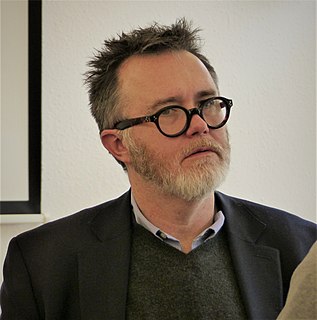A Quote by Clint Eastwood
Our modern society - especially in the West, and especially now - reveres youth.
Related Quotes
The West has never been all of the world that matters. The West has not been the only actor on the stage of modern history even at the peak of the West's power (and this peak has perhaps now already been passed)... It has not been the West that has been hit by the world; it has been the world that has been hit - and hit hard - by the West.
Few places in American culture have made as effective a case for entrepreneurship than hip-hop. Hip-hop tells young people that our society is offering very limited options for youth. And that while society points to a radical decline in living wage jobs for youth and meaningful and affordable education, hip-hop is offering an alternative legitimate economy that is giving youth hope.
As it turns out, the ecological catastrophe Kirk feared that would be the consequence of our impiety appears not to be one of radically diminished resources, but of potentially catastrophic climate change. It comes from an arrogant refusal by a modern consumerist society to accept limits on its desires. Kirk's idea of the "eternal society" evaporates before the insatiable demands of the Everlasting Now.
Industrial Society is not merely one containing 'industry,' large-scale productive units capable of supplying man's material needs in a way which can eliminate poverty: it is also a society in which knowledge plays a part wholly different from that which it played in earlier social forms, and which indeed possesses a quite different type of knowledge. Modern science is inconceivable outside an industrial society: but modern industrial society is equally inconceivable without modern science. Roughly, science is the mode of cognition of industrial society, and industry is the ecology of science.
For 500 years the West patented six killer applications that set it apart. The first to download them was Japan. Over the last century, one Asian country after another has downloaded these killer apps- competition, modern science, the rule of law and private property rights, modern medicine, the consumer society and the work ethic. Those six things are the secret sauce of Western civilization.
Today the crime novelist has one advantage denied to writers of 'straight' or 'literary' novels. Unlike them he can range over all levels of society, for crime can easily breach the barriers that exist in our stratified society. Because of these barriers the modern literary novel, unlike its 19th-century predecessors, is often confined to the horizontal, dealing only with one class. But crime runs through society from top to bottom, and so the crime novelist can present a fuller picture of the way we live now.
I know it sounds old-fashioned to say we're too materialistic in the West, but happiness does not derive exclusively from things, and yet we seem to be structuring our whole society around things. I think that's partially why Westerners are joining ISIS and going to Syria. We have lost our way in the West in holding up a vision for humanity that is not exclusively shaped by materialism.
It is a fact that, in the West, we live in a capitalist society, but that does not mean that we cannot be guided by the idea of a social conscience in our work. Yes, fashion design requires consumers to consume, but we can do our bit for society by running our companies in a socially responsible way, and by creating products that promote respect for social and environmental issues. There is also the possibility for power and influence to be a force for change.
Our society and our organizations have learned to value masculine, 'quick-fix' traits in leaders. In a primitive society, a rural society, or even the industrial society of the early 1990s, quick fixes worked out all right. But they are less likely to work in a complex society. We need to look at long-range outcomes now. Service and patience are what can keep things running effectively today and women can contribute a lot in both of these areas.




































